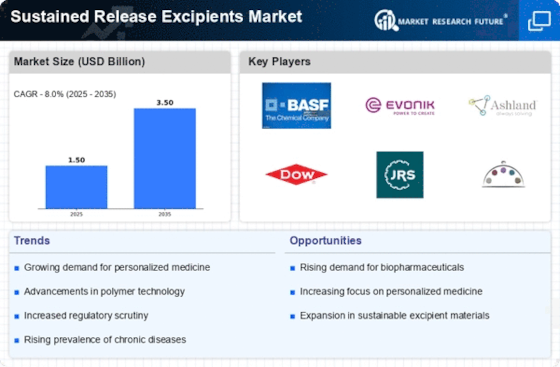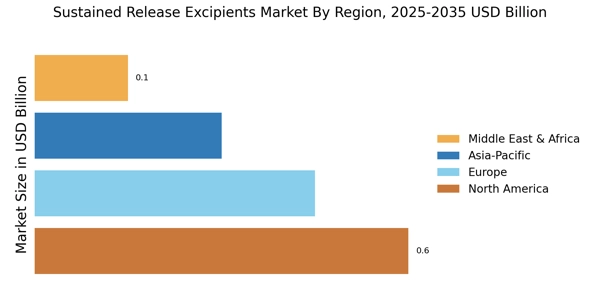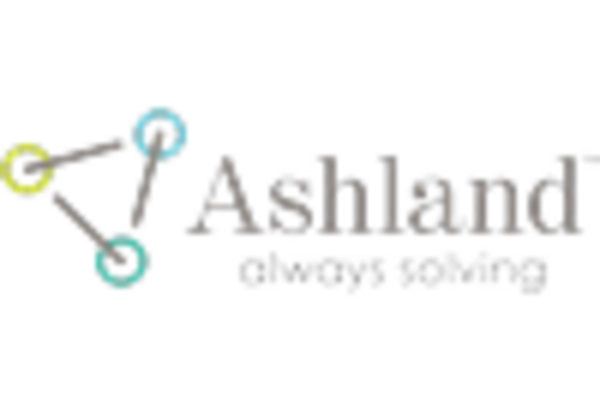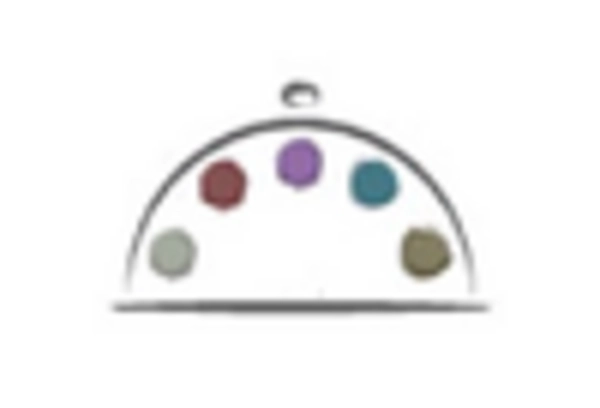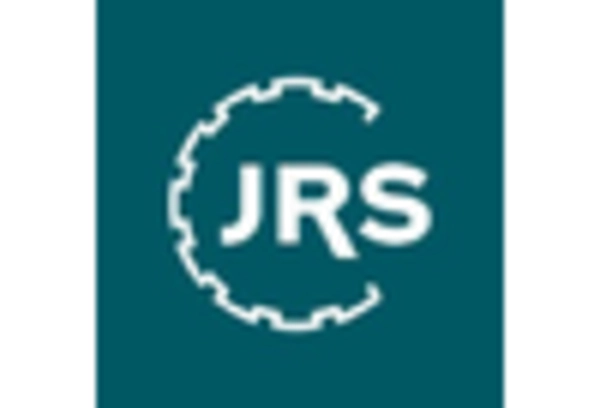Increasing Prevalence of Chronic Diseases
The rising incidence of chronic diseases such as diabetes, hypertension, and cardiovascular disorders is a pivotal driver for the Sustained Release Excipients Market. As the global population ages, the demand for medications that require prolonged therapeutic effects intensifies. This trend is reflected in the pharmaceutical sector, where sustained release formulations are increasingly favored for their ability to enhance patient compliance and minimize side effects. According to recent data, chronic diseases account for a substantial portion of healthcare expenditures, prompting pharmaceutical companies to invest in innovative excipients that facilitate sustained drug release. This shift not only addresses the therapeutic needs of patients but also aligns with the industry's focus on developing more effective and patient-friendly drug delivery systems.
Rising Investment in Research and Development
The Sustained Release Excipients Market is experiencing a surge in investment directed towards research and development. Pharmaceutical companies are increasingly allocating resources to explore novel excipients that can improve drug solubility and bioavailability. This trend is underscored by the growing emphasis on developing complex formulations that cater to specific patient needs. Recent statistics suggest that R&D spending in the pharmaceutical sector has reached unprecedented levels, with a significant portion dedicated to excipient innovation. This investment not only fosters the creation of new sustained release products but also enhances the overall quality and performance of existing formulations, thereby driving market expansion.
Growing Focus on Patient Compliance and Convenience
The increasing focus on patient compliance and convenience is a significant driver for the Sustained Release Excipients Market. Patients often prefer medications that require less frequent dosing, as this enhances adherence to treatment regimens. Sustained release formulations address this need by providing prolonged therapeutic effects, thereby reducing the burden of multiple daily doses. Market analysis reveals that products designed for improved patient convenience are gaining traction, leading to a shift in pharmaceutical strategies. As healthcare providers prioritize patient-centric approaches, the demand for excipients that facilitate sustained release mechanisms is likely to grow, further influencing market trends.
Regulatory Support for Innovative Drug Formulations
Regulatory bodies are increasingly supportive of innovative drug formulations, which is a crucial driver for the Sustained Release Excipients Market. The establishment of streamlined approval processes for novel excipients and formulations encourages pharmaceutical companies to invest in sustained release technologies. This regulatory environment fosters innovation and facilitates the introduction of new products to the market. Data indicates that regions with proactive regulatory frameworks have seen a higher rate of new product launches, reflecting the positive impact of regulatory support on market dynamics. As companies navigate the complexities of drug development, the backing of regulatory agencies plays a vital role in promoting sustained release excipients.
Technological Advancements in Drug Delivery Systems
Technological innovations in drug delivery systems are significantly influencing the Sustained Release Excipients Market. The integration of advanced materials and manufacturing techniques, such as 3D printing and nanotechnology, has enabled the development of more sophisticated sustained release formulations. These advancements allow for precise control over drug release profiles, enhancing the efficacy and safety of medications. Market data indicates that the adoption of these technologies is expected to grow, driven by the need for personalized medicine and targeted therapies. As pharmaceutical companies increasingly seek to differentiate their products, the demand for high-performance excipients that support sustained release mechanisms is likely to rise, further propelling market growth.


